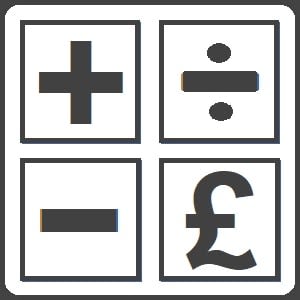Employment vs. Self-Employment: Understanding Your Tax Status

Employee vs. Self-Employed Confusion:
Who am I? Where am I?
In the UK, whether you are considered an "employee" or "self-employed" is not a matter of personal choice or convenience. It is a legal classification with serious tax implications. Misclassifying your employment status can lead to severe consequences, including tax penalties and the loss of employment rights.
Legal Distinction Between Employment and Self-Employment
Your employment status is determined by the actual nature of your working relationship, not by the label you or your employer choose to apply. HM Revenue & Customs (HMRC) assesses employment status based on established case law, and focuses on several key factors: Control – who decides how, when, and where you work?Personal service – are you required to do the work yourself, or can you send someone else?
Mutual obligation – is the employer obliged to offer work, and are you obliged to accept it? Integration – are you integrated into the organisation structure? Even if your contract says you are self-employed, HMRC will examine how you actually work. For example, if you work under a client's direction and only for them, you may be treated as an “employee” for tax purposes. Tax payment test - are you paying less tax in one of the another way of filing ? These only list a few factors that are often considered. A detailed checklist is available and used by HMRC to check and test whether one is employed or self-employed. If you need a thorough test to determine your own status, contact us for the full details.
Tax Differences Between Employees and the Self-Employed
The difference between being employed and self-employed directly affects your tax responsibilities:
Employees – pay Income Tax and National Insurance (NIC) through the Pay As You Earn (PAYE) system.
Self-employed – pay Income Tax and Class 2 and Class 4 NIC through the Self Assessment system.
Incorrectly reporting your income may result in underpaying or overpaying tax – both have consequences. Underpayment could lead to penalties and interest, while overpayment might mean missing out on benefits you’re entitled to.
Misclassification: What’s the Risk?
If HMRC finds that you’ve misclassified your employment status, you could face:
Back tax – unpaid Income Tax and NIC.
Penalties – fines for incorrect filings.
Legal action – if HMRC believes it was done on purpose, there may be legal proceedings.
Even if the mistake wasn’t intentional, it is still your legal responsibility to ensure your tax filing is accurate. Under the Self Assessment system, HMRC expects taxpayers to correctly assess their own tax position.
Seek Professional Advice
Given how complex these issues can be, it is advisable to speak with a qualified tax adviser or accountant to assess your employment status and ensure your tax filings are correct. A professional can help you understand your situation and avoid costly mistakes.
Understanding and correctly reporting your employment status is essential for staying compliant with UK tax law. Getting it wrong could lead to serious financial and legal trouble. We have encountered many clients using their common sense to guide their tax issues. Unfortunately UK tax is not as easy as common sense can explain sometimes. Elaga Accountancy is well experienced in vairous situation of classfying tax category and employement test. If you're unsure about your status, seek proper advice to make sure you're meeting your tax obligations. Seek Proifessional Advice.
***Contact us to learn more.
#UKTax #HMRC #SelfAssessment #EmploymentStatus #SelfEmployed #TaxAdvice #UKAccounting #TaxCompliance #SmallBusinessUK #HMRCGuidelines #TaxMatters #PayrollUK #FreelancerUK #ContractorLife #TaxReturnUK
Contact Us
Send a Message
Get in touch to discuss with us how we can best assist you.
